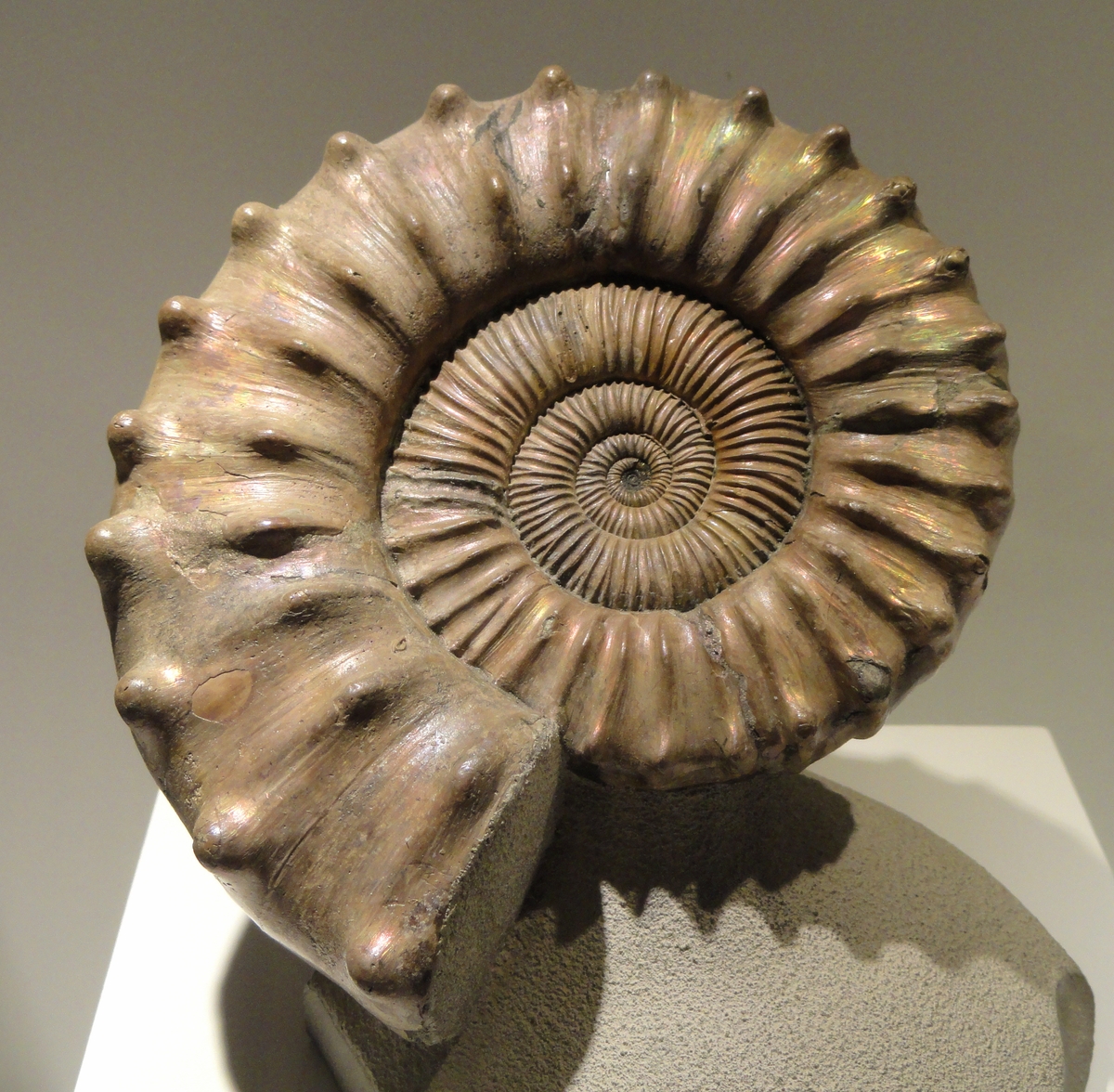How curiosity adds spice to everything
One wonderful aspect of curiosity is uncertainty. When you are curious, you are uncertain. Gleefully or trepidatiously so, but whatever kind of uncertainty you have, curiosity serves as an invitation to exploration.
6 scintillating books on being curious
| Title | What stands out | Read this when | |
| The Periodic Table of the Elements by Primo Levi BUY INDIE | A stand-out blend of memoir and fiction, Levi’s general curiosity and love for life burn bright here. It’s hard not to admire his fascination with chemistry and how it underlies so much of our everyday lives. | You want to be caught up in the infectious alchemy of Levi’s words. | |
| Remarkable Creatures by Tracy Chevalier BUY INDIE | Maybe I’m the only one here obsessed with fossils, but to this day I find these rocky hunks scintillating. In this quietly comforting novel, they serve as touchstones for friendship and a way out of ossified social mores. | You, too, fancy sifting a beach to see what washed up. | |
| Curious by Ian Leslie BUY INDIE | Maybe you’re curious about…curiosity itself. If so, Leslie is here to give you an overview. Find out about different kinds of curiosity, consider its pluses and minuses, and more. | You have so many questions. | |
| The Orchid Thief by Susan Orlean BUY INDIE | This classic holds up, in that it showcases Orlean’s gently relentless curiosity alongside her subjects’ passionate interest in (yes) orchids. One of the gleaming advantages of curiosity is finding out things you never knew you wanted to. | You love a complicated, multi-threaded narrative whose humans are always front and center. | |
| A Short History of Nearly Everything by Bill Bryson BUY INDIE | Often, if you get curious about one thing, that leads to getting intrigued by another thing…and then yet another. Such is the case for Bryson–might as well buckle up and ride along. | You’re capable of finding pretty much anything compelling. | |
| How to Be a Dictator by Frank Dikotter BUY INDIE | I think a lack of curiosity can quickly crumple the soul. Here we encounter a handful of dictators in all their terrible incuriosity. | You’d like a reminder of how certainty stunts. |
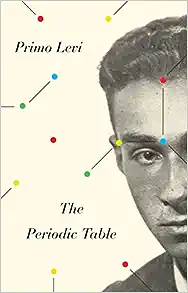
The Periodic Table of the Elements by Primo Levi
As Primo Levi writes: “Our ignorance allowed us to live, as you are in the mountains, and your rope is frayed and about to break, but you don’t know it and feel safe.”
It’s true – curiosity has a dangerous side. You may discover yourself unexpectedly vulnerable; you may unearth more things to fear, more problems you cannot solve. Yet what a lot of lotus-eating life would be without the tang of curiosity!
For a view into how to survive some of the worst experiences humanity can contrive while still cultivating curiosity, follow Levi’s lead. An Auschwitz survivor and professional chemist, Levi remains exquisitely aware of life’s arbitrary nature. Disaster and triumph both contain elements of arbitrariness – death can hinge on whether or not you have a cold, just as solving a difficult puzzle can depend on whether or not you talk to the right colleague on the right day.
“In those days, as I was waiting fairly courageously for death, I harbored a piercing hope for everything, for all imaginable human experiences, and I cursed my preceding life, which it seemed to me I had taken little and poor advantage of, and I felt time slipping through my fingers, escaping from my body minute by minute, like a hemorrhage that cannot be stanched.”
It’s humbling, to be so aware of chance and of how the world carries on, whether or not you manage to set your own corner of it to rights. What you can do to counter chance, however, is to hone your curiosity and your desire for interesting experiences. Some of the best adventures happen not necessarily to the boldest, but to those simply enthralled with healthy questions.
In “Periodic Table of the Elements,” Levi interweaves personal narratives from his long and fascinating life with short stories, account of chemical detective work, and musings on how a tenacious and adventurous spirit helps you meet the best people and enjoy life for the best of what it can be.
Where’s the bibliotherapy?
Curiosity, Levi relates, helps you recover from wounds, connects you with both your human side and the larger world, and helps you escape your own brain in the best possible way. Many of his insights are borne out biochemically.
Read more, for example, about the science of curiosity. Cultivating curiosity can expand your lifespan, strengthen your relationships, and simply add savor to your day.
Read Periodic Table of the Elements when
You are feeling pinched by monotonous days. Or when you’d like to be inspired by someone who can squeeze through a genocide with a wry degree of curiosity intact.
A little more
- Read The Atlantic article on Primo Levi’s enduring relevance
- Sift through the Centro Primo Levi site
- If chemistry isn’t your cup of tea, you could sample Maria Gainza’s Optic Nerve, which blends memoir and reflections on painting in a similar way
- Get a jolt of rock-climbing-related inspiration by catching a glimpse into the high-stakes world of free solo rock climbing
- Whet your chemistry curiosity with a free chemistry course or a more advanced book: Elements: A Visual Exploration of Every Known Atom in the Universe
- Learn more about the Periodic Table itself, from unusual tables to the tried and true classic
Comb the shore with Remarkable Creatures
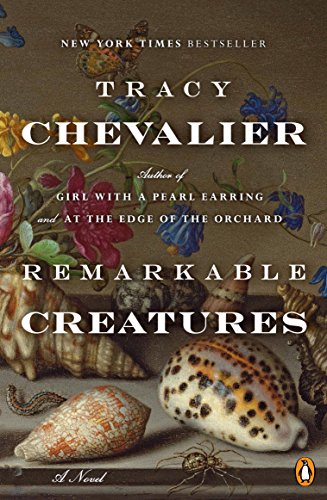
Remarkable Creatures by Tracy Chevalier
One of the delights of curiosity is when the universe drops a juicy piece of revelation right in front of you. Something you would have loved to know more about, had you known it existed in the first place. Luckily, the universe rewards us richly, often for just a little bit of digging.
In Remarkable Creatures, Tracy Chevalier crafts a fictional profile of real-life fossil hunter Mary Anning. Not only is this a fulfilling read for those of us still fascinated by ancient bones and fossils underground – it’s also a righting of the record, shining light on an overlooked scientist and generally curious person while also relaying an ember-warm story about female friendship that definitely passes the Bechdel test.
Mary stops to split open a nodule and find what may be lodged within. I dig through clay, searching for something new and miraculous. We say very little, for we do not need to. We are silent together, each in her own world, knowing the other is just at her back.”
I appreciate how Chevalier traces the whorls of friendship and shows how being curious enough can lead to living a richly creative life. Mutual passion for facts and findings can bring people together, something I definitely miss from days when I was more immersed in bioethics or in polar science. The pleasure of finding things out is not always expensive and is definitely not beyond our reach.
Where’s the bibliotherapy?
Mary Anning’s drive to find fossils – nearly the last thing one would expect her to devote her life to – can inspire us to exercise our curiosity in novel places. It might be the right time to take a trip somewhere unexpected, to try exploring friendship with a different type of person, to let yourself truly luxuriate in a new language or scientific pursuit, or to just ask yourself a few questions and see where they lead you.
Read this when
It’s a misty, wistful day and you would really love to plunge your fingers into life’s sands and pull up something amazing. Or when you’d like to watch a friendship unfold between two people who really understand each other.
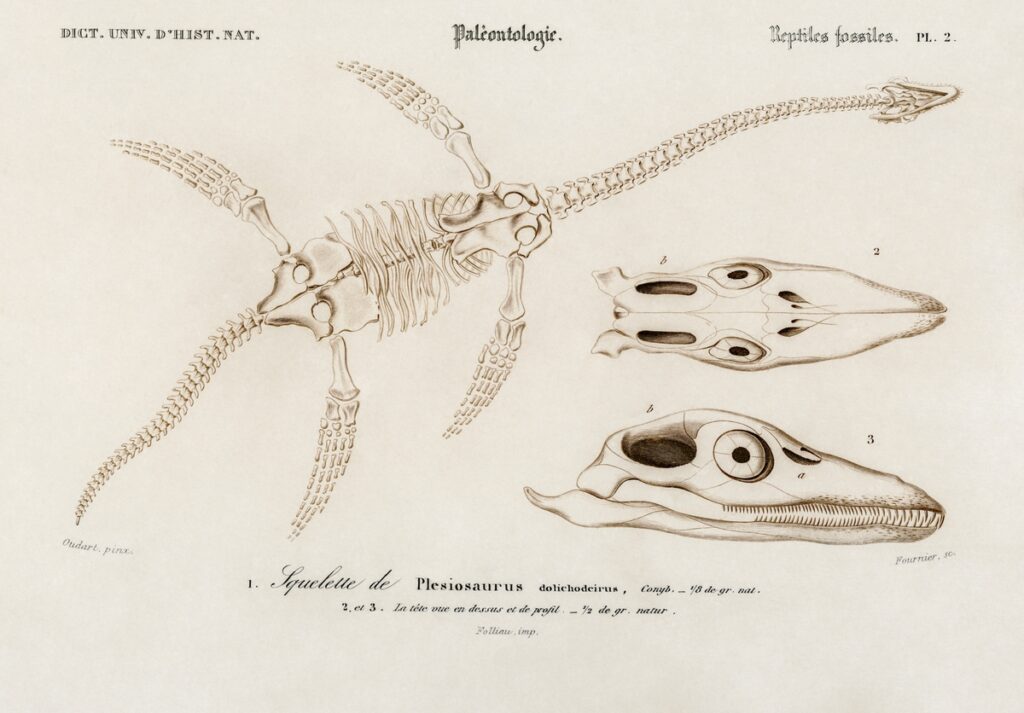
A little more
- There’s more about Mary Anning out there, including Shelley Emling’s The Fossil Hunter
- Rife with curiosity about history and science, Anthony Doerr’s first short story collection, The Shell Collector, offers a buffet of bite-sized pieces on being curious
- The Natural History Museum page on Mary Anning
- The American Museum of Natural History gives fossil-finding tips
- Peruse all the fossil hunters you could ever want to know about
- Check out the Deep Human Story of Collecting Fossils
Look more closely with Curious
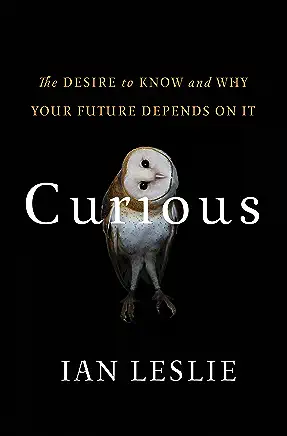
Curious by Ian Leslie
This may not be the most incisive book about human curiosity, but it does provide a broad overview. Throughout its pages, Ian Leslie explains different types of curiosity and delves into how curiosity could, yes, kill the cat, but might also deliver unimaginable experiences.
“There’s a reason for this. Curiosity is unruly. It doesn’t like rules, or at least, it assumes that all rules are provisional, subject to the laceration of a smart question nobody has yet thought to ask. It disdains the approved pathways, preferring diversions, unplanned excursions, impulsive left turns. In short, curiosity is deviant. Pursuing it is liable to bring you into conflict with authority at some point, as everyone from Galileo to Charles Darwin to Steve Jobs could have attested.”
Leslie can be dour about certain things, such as the Internet’s ability to make answer-finding (perhaps unhelpfully) seamless, but he’s also an optimist about curiosity’s ability to stimulate creativity.
Where’s the bibliotherapy?
It’s easy to say “be curious” and a little bit more difficult to figure out how to follow that advice. Leslie guides readers toward rewarding ways to cultivate their own curiosity.
Read this when
The right questions seem elusive. Or – heaven forbid! – you feel clutched in the claws of boredom.
A little more
- Ian Leslie’s homepage
- Documentaries upon documentaries at Curiosity Stream
- Charming tweets from the Mars Curiosity Rover
- Astrophysicist Mario Livio discusses what makes us curious:
- The classic, the original Curious George, read out loud
Wade into deep curiosity with The Orchid Thief
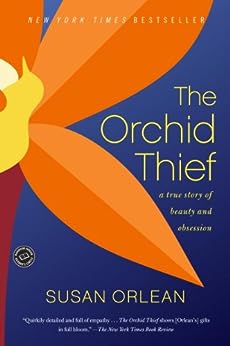
The Orchid Thief by Susan Orlean
Now for a book I read once every four or five years, a book so convoluted and bedeviled by lack of conventional plot, director Charley Kaufman decided to make the movie adaptation meta. Orlean excels at finding people who follow their passions, the ones you always hope to bump into at cocktail parties. While it is, indeed, about orchids, “The Orchid Thief” is also a paean to people with curious obsessions and to Orlean herself, who refuses to put a limit on questions.
“More and more, I felt that I was meeting people like Lee who didn’t at all seem part of this modern world and this moment in time – the world of petty aggravations and obligations and boundaries, a time of bored cynicism – because how they lived and what they lived for was so optimistic. They sincerely loved something, trusted in the perfectibility of some living thing, lived for a myth about themselves and the idea of adventure, were convinced that certain things were really worth dying for, believed that they could make their lives into whatever they dreamed.”
See? In many of my more convention-bound moments, I’ve wondered how it might feel to flat-out chase the weird little things I love. Maybe I should’ve become a bat researcher, after all? Maybe I should have stayed in Mexico to explore the craft of making daguerreotypes that one time? There’s a freedom in admitting you wonder about something and therefore care about it, just as there’s a boldness in dedicating energy to things others so easily overlook.
QUOTE: “The world is so huge that people are always getting lost in it. There are too many ideas and things and people too many directions to go. I was starting to believe that the reason it matters to care passionately about something is that it whittles the world down to a more manageable size. It makes the world seem not huge and empty but full of possibility.”
Where’s the bibliotherapy?
You don’t have to love orchids to benefit from Orlean’s big-hearted curiosity or to appreciate where it takes her. From claustrophobic swamps to laughably fancy flower shows, watch how Orlean stays open and engaged, steadily curious about whatever comes next. Maybe a little of the same approach could work for you?
Read this when
You’d like to wander a labyrinth of passions and get swept up in others’ strange quests. Or you like orchids.
A little more
- Susan Orlean’s website
- Orlean talks about how she finds her subjects: She also answers a barrage of questions: and gives us a tour of her chicken coop
- The 2002 trailer for Adaptation
- Eyeball the 10 Weirdest Looking Orchids In the World
- Wander over to The American Orchid Society
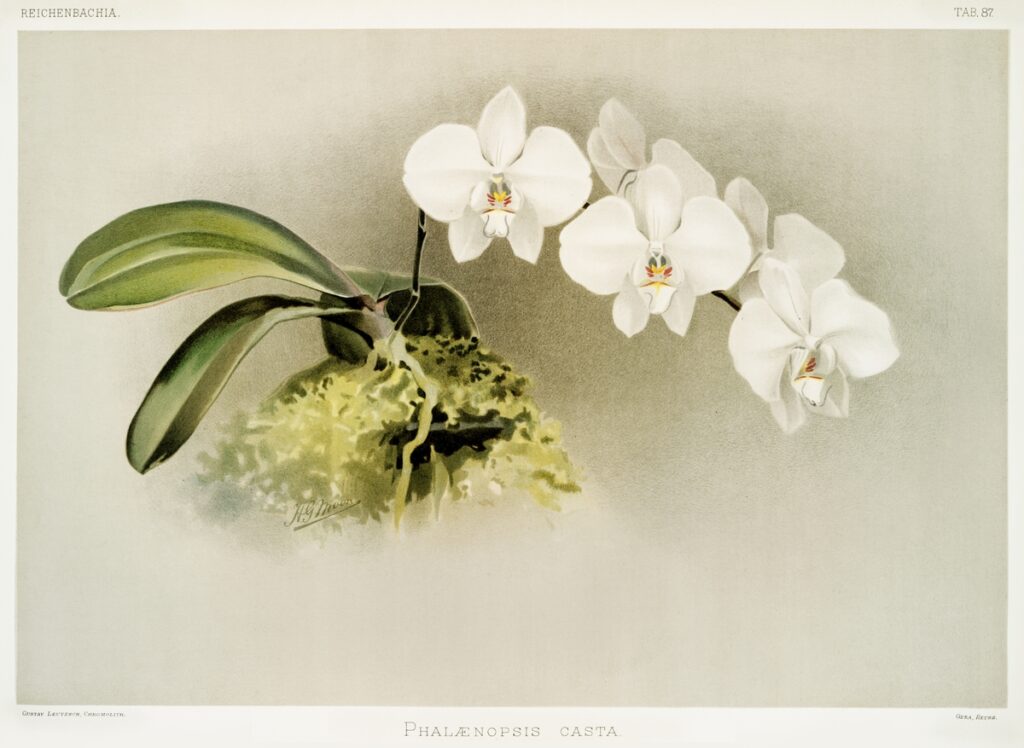
Read a little about…everything
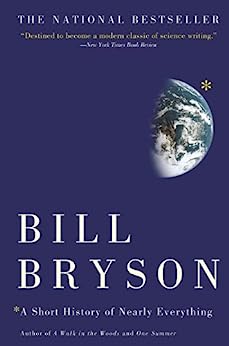
A Short History of Nearly Everything by Bill Bryson
Another well-known non-fiction writer, Bill Bryson just spills curiosity everywhere in “A Short History of Nearly Everything.” Is it impossible to investigate everything? Of course. But you can nibble away as fast as you can, stashing nuggets of knowledge like a chipmunk filling its cheeks, and you can start here as Bryson plies his trademark humor to gently barrage readers with amazing facts.
Curiosity is absurd, in its own way, since you can never truly satisfy curiosity and are therefore going to be doomed to keep trying. An enviable condition, according to Bryson. And a saving one, seeing as curiosity pries us from dogmatism, ignorance, and stultification. What can you do? Laugh at the impossibility, then just keep gleefully asking questions!
“The upshot of all this is that we live in a universe whose age we can’t quite compute, surrounded by stars whose distances we don’t altogether know, filled with matter we can’t identify, operating in conformance with physical laws whose properties we don’t truly understand.”
Where’s the bibliotherapy?
Bryson reminds us that beneath nearly every surface and emotional state around us is something intriguing. All we have to do is chip away, prod a little, be patient…and voila, crumbs of enlightenment. The work of drawing illuminating associations and noticing useful habits is up to us, but raw knowledge itself sparkles all around us. What would you like to know more about?
Read this when
You’d like to find the funny side of being curious. Or you’d like to pester everyone around you with incredible factoids.
A little more
- Bill Bryson talks about A Short History of Nearly Everything and the irrepressible urge to share cool facts
- He also delivers a lecture about science
- You could fall down a rabbit hole of weird history
- Or laugh at the historic humor unearthed by The Dollop
- Interact with histography, graphs of history
What happens to incurious people?
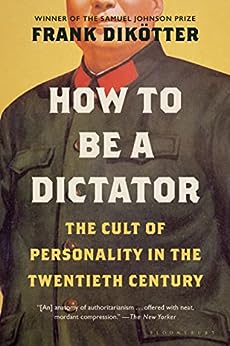
How to Be a Dictator by Frank Dikotter
What happens when a society cannot stomach curiosity? It may breed a dictator, as Frank Dikötter demonstrates in his account of how dictators developed across time and different countries. When curiosity becomes a luxury or an alarming characteristic that must be banned, we lose the ability to ask questions.
Where’s the bibliotherapy?
Although most of us are in no personal danger of becoming dictators, it’s eerily useful to recognize the kinds of environments that help dictators thrive. Suffice it to say: when following a personality becomes more compelling than questioning that person, it’s a red flag.
Read “How To Be a Dictator” when
You’d like to be chilled. Or you’re oddly curious about influential dictators and how they spread.
